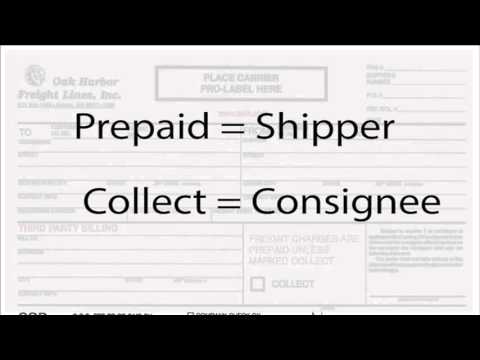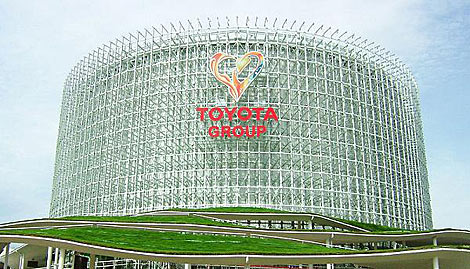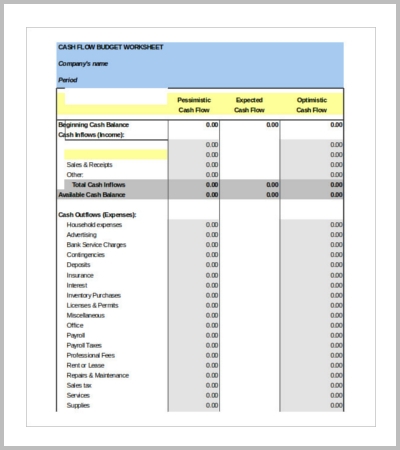
An industrial bank is a type of financial institution that offers only a limited range of services. Industrial banks accept customer deposits and sell certificates, also known as investment shares. Industrial banks then use the proceeds to make installment loans for consumers and small businesses. A commercial bank is a type of financial institution that accepts deposits, while offering checking account services, loans, and offers basic financial products such as certificates of deposit (CDs) and savings accounts for individuals and small businesses. Another focus of an industrial bank may be to provide loans for specific purposes that are related to the owner of the institution.

Some will extend mortgages and other long-term loans to individuals, but it is more common to reserve these types of loans for businesses. Industrial banks, driven by expansion in Utah, grew from the late 1990s through the mid-2000s. What stopped the growth (and effectively paused the creation of further industrial banks from 2008 to 2020) was the Dodd-Frank Act, which was enacted in the aftermath of the financial crisis. In November 2019, Senator John Kennedy of Louisiana introduced a bill, called the “Eliminating Corporate Shadow Banking Act of 2019,” that would effectively end the ability of nonfinancial companies to form industrial banks. The ICBA has expressed its support for Sen. Kennedy’s bill, claiming that it would close the loophole of industrial banks, create a safer financial system, and help maintain the separation of banking and commerce. Many of these chose to base their original bank operations in Utah to take advantage of the state’s industrial bank charter and later transitioned to become a commercial banks.
Industrial Bank Subsidiaries of Financial Companies.
They are regulated and supervised by state charters and insured by the Federal Deposit Insurance Corporation. They are authorized to make consumer and commercial loans and accept federally insured deposits. Banks may not accept demand deposits if the bank has total assets greater than $100 million. In early 2019, lobbyists from the Independent Community Bankers of America (ICBA) distributed a policy paper that called for a moratorium on providing federal deposit insurance to industrial banks.

For example, an automobile manufacturer may establish an industrial bank to provide new car loans. In doing so, the manufacturer may be able to provide more attractive interest rates and repayment plans then available at competing financial institutions. An industrial bank is a state-chartered, financial institution, usually owned by a commercial firm, that is not regulated by a federal banking agency.
How an Industrial Bank Works
Other states that currently permit the chartering of these types of banks include California, Hawaii, Minnesota, and Indiana. An industrial bank is a state-chartered depository institution that can be owned by non-financial entities. Industrial banks are subject not to oversight by the Federal Reserve, but rather by the states in which they are formed. Industrial banks were originally founded in the early 1900s in order to provide low-to-moderate-income industrial workers who were unable to qualify for credit at traditional lending institutions with a means to access capital. (b) The FDIC may, at its sole discretion, condition a grant of deposit insurance, issuance of a non-objection to a change in control, or approval of a merger on an individual who is a controlling shareholder of a Covered Company joining as a party to any written agreement required by paragraph (a) of this section. ILCs assist numerous charities and provide millions of dollars annually in grants, low interest loans, and service through the Community Reinvestment Act (CRA).
- In 1910, attorney Arthur J. Morris (1881–1973) opened the Fidelity Savings and Trust Company in Norfolk, Virginia, which made small loans to working people under a concept he called the “Morris Plan”.
- Industrial banks accept customer deposits and sell certificates, also known as investment shares.
- In 2005, Walmart Inc. filed an application to form a new industrial bank for the purpose of reducing credit and debit card transaction fees.
- Industrial banks are regulated by state regulators and by the Federal Deposit Insurance Corp. (FDIC).
- At the same time, state-level legislation was passed that would block any prospective industrial banks from opening branches in different jurisdictions.
To be considered to start an industrial bank, the corporation must apply for a charter through a state that allows them. All content on this website, including dictionary, thesaurus, literature, geography, and other reference data is for informational purposes only. This information should not industrial bank meaning be considered complete, up to date, and is not intended to be used in place of a visit, consultation, or advice of a legal, medical, or any other professional. They are regulated by the state in which they operate, and are supervised and insured by the Federal Deposit Insurance Corp. (FDIC).
Company
In 1910, attorney Arthur J. Morris (1881–1973) opened the Fidelity Savings and Trust Company in Norfolk, Virginia, which made small loans to working people under a concept he called the “Morris Plan”. After many years in the teleconferencing industry, Michael decided to embrace his passion for
trivia, research, and writing by becoming a full-time freelance writer. Since then, he has contributed articles to a
variety of print and online publications, including SmartCapitalMind, and his work has also appeared in poetry collections,
devotional anthologies, and several newspapers. Malcolm’s other interests include collecting vinyl records, minor
league baseball, and cycling. (3) That is granted deposit insurance by the FDIC pursuant to section 6 of the FDI Act, in each case on or after April 1, 2021.
The company’s stated belief is that bringing banking in-house will allow it to operate more nimbly. In 2005, Walmart Inc. filed an application to form a new industrial bank for the purpose of reducing credit and debit card transaction fees. This triggered widespread opposition and protests from commercial banks and financial regulators. At the same time, state-level legislation was passed that would block any prospective industrial banks from opening branches in different jurisdictions. Commercial banks derive capital from customer deposits through checking, savings, money market accounts, and certificates of deposit. Customers are paid interest for providing banks with the working capital necessary to make loans.
Their actions were motivated by a new wave of fintech companies, including payment processor Square Inc., that have submitted applications for state bank charters. A bank charter would allow Square Inc. to provide loans and other financial services directly to its merchants. However, ICBA claims that industrial bank charters are a loophole that Congress needs to address. Not only would fintech companies who receive bank charters be exempt from supervision by the Federal Reserve, but they also wouldn’t be required to disclose any nonbanking-related commercial activities. Otherwise, industrial banks are subject to the same laws, regulations, and examinations as commercial banks.
INDUSTRIAL BANK
Industrial banks accept customer deposits and provide loans for consumers and small businesses. Also known as an industrial loan company (ILC), an industrial bank provides a relatively narrow set of services to both businesses as well as individuals. The financial services offered by an industrial bank focus on writing loans; however, they also accept deposits from customers that will be FDIC insured. Industrial banks, also known as industrial loan companies (ILCs), are state-chartered financial institutions that offer operational flexibility to non-financial companies. Nonfinancial companies can charter and operate industrial banks in states that allow them when deposits are insured by the FDIC.
Most will focus on lending activities only, and do not provide other types of accounts for their customers. For this reason, any individual or company who does business with a lending institution of this kind will also maintain bank accounts at other institutions, including checking and savings accounts. In 1982, Congress made all industrial banks eligible for deposit insurance and in 1987, made an exception to the Bank Holding Company Act that allowed parent companies to own and control industrial banks without being subject to the same federal regulations as a bank holding company. Originally, the purpose of an industrial loan company (or ILC) was to help industrial workers, usually employees of the same company, obtain banking services. For the next 20 years, loans obtained by these workers were the largest source of credit for this segment of borrowers.
A limited service financial institution that raises funds by selling certificates called “investment shares” and by accepting deposits, and invests such funds in installment loans to consumers and to small businesses. Often such loans are secured by a third party who signs a co-maker note pledging to repay the loan if the borrower defaults, or the loan is secured by a chattel mortgage. Industrial banks are distinguished from commercial loan companies because industrial banks accept deposits in addition to making consumer loans. Industrial banks are distinguished from commercial banks because industrial banks do not offer demand deposit (checking) accounts. An industrial loan company (ILC) or industrial bank is a financial institution in the United States that lends money, and may be owned by non-financial institutions. All “FDIC-insured entities are subject to Sections 23A and 23B of the Federal Reserve Act, which limits bank transactions with affiliates, including the non-bank parent company.”[1] ILCs are permitted to have branches in multiple states (which is permitted by many states on a reciprocal basis).
Of course, the interest rate paid by banks on money borrowed from customers is less than the interest rate charged on money loaned to customers. Commercial banks turn profits in the form of interest income from the interest-bearing loans that they offer customers. These loans typically include mortgage loans, automobile loans, personal loans, and business loans. An industrial bank operates much like other commercial banks; however, many limit the scope of their business to a narrower customer base, such as only offering auto loans or construction loans.
Industrial bank means any insured State bank that is an industrial bank, industrial loan company, or other similar institution that is excluded from the definition of the term “bank” in section 2(c)(2)(H) of the Bank Holding Company Act, 12 U.S.C. 1841(c)(2)(H). The exact model for an industrial bank will vary somewhat, depending on the sector of the consumer market that serves as the target audience for the operation. The bank may focus on granting loans to individuals who work within a given industry, with many of those being simple short-term loans that make it possible to purchase a vehicle or make minor repairs to the home.
The tax allocation agreement also must provide that the amount and timing of any payments or refunds to the subsidiary industrial bank by the Covered Company should be no less favorable than if the subsidiary industrial bank were a separate taxpayer. In the United States, an industrial bank can have branches located in multiple states, with the institution chartered in one of the states where it has a presence. Not every state in the USA allows for the chartering of an industrial bank, although there is speculation that the number will increase over the next few decades. Of all the states currently allowing the charter of industrial banks, the majority are chartered in the state of Utah.
